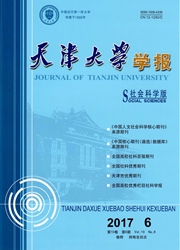

 中文摘要:
中文摘要:
灾后基础设施重建的特殊性以及国际经验揭示了公众参与的必要性。基于参与式发展的思路表明,当地灾民、社区、非政府组织等利益相关或感兴趣的个人、群体或组织参与基础设施重建活动的内容、过程和结果的控制,将提高重建效率,并保证其过程及结果的公正性。应用利益相关者理论等,基于主体、客体和环境3个视角构建了基础设施重建中公众参与的行为框架。鉴于基础设施重建各阶段中公众参与程度的要求均不相同,为实现公众参与过程中效率与公平的均衡,在参与程度设置讨论的基础上,通过对托马斯的公众参与有效决策模型进行修改,构建了公众参与模式的选择模型。
 英文摘要:
英文摘要:
The necessity of public participation is determined by the particularity and international experience of post-disas- ter infrastructure reconstruction. Based on the thought of participatory development, it will improve the efficiency of reconstruction and ensure the fairness of the process and the results that the stakeholder or interested individuals, groups and organizations, such as local victims, communities, non-governmental organizations, participate in the contents, process and result control of the infrastructure reconstruction activities. Applied the stakeholder theory, a behavior framework of public participation in infrastructure reconstruction was constructed based on the perspectives of subject, object and environment. In view of the different requirements for the degree of public participation in various phases of reconstruction, and for balancing the efficiency and fairness of the process, the public participation road is discussed separately from participation degree setting and participation model selection, and a selection model is addressed by referring the emendatory participation model created by John Clayton Thomas.
 同期刊论文项目
同期刊论文项目
 同项目期刊论文
同项目期刊论文
 A total factor productivity measure for the construction industry and analysis of its spatial differ
A total factor productivity measure for the construction industry and analysis of its spatial differ The decision model of the intuitionistic fuzzy group bid evaluation for urban infrastructure project
The decision model of the intuitionistic fuzzy group bid evaluation for urban infrastructure project A two-layer weight determination method for complex multi-attribute large-group decision-making expe
A two-layer weight determination method for complex multi-attribute large-group decision-making expe A partial binary tree DEA-DA cyclic classification model for decision makers in complex multi-attrib
A partial binary tree DEA-DA cyclic classification model for decision makers in complex multi-attrib 期刊信息
期刊信息
